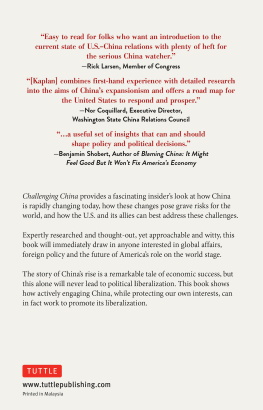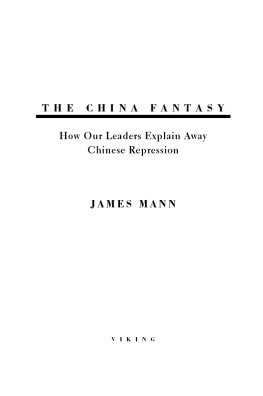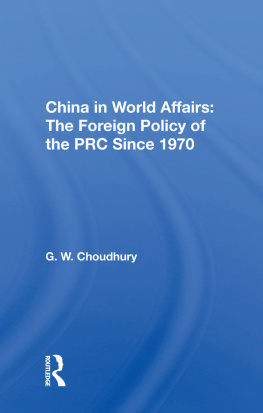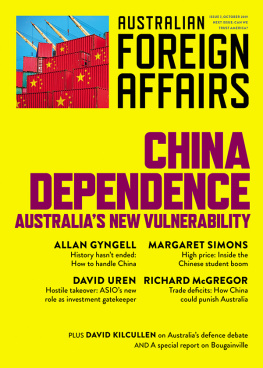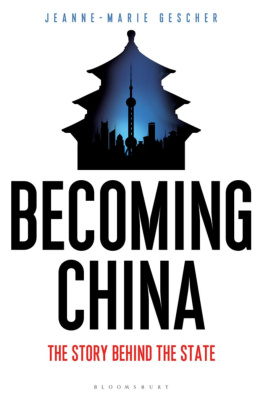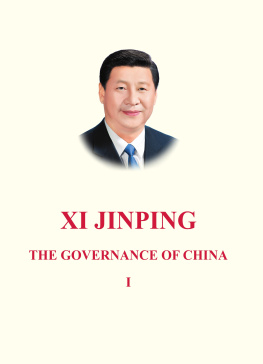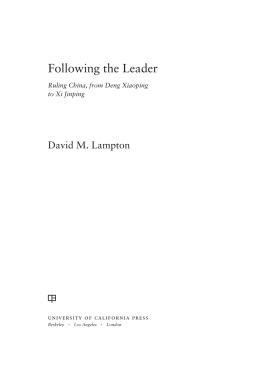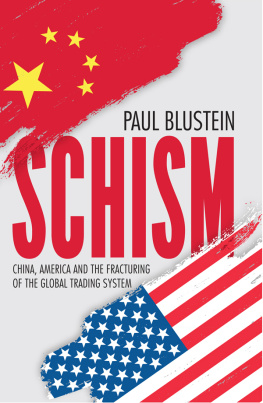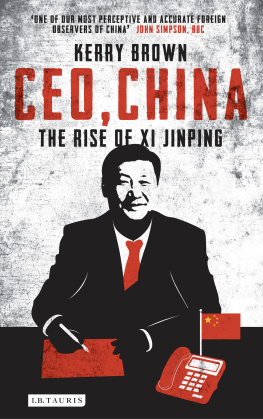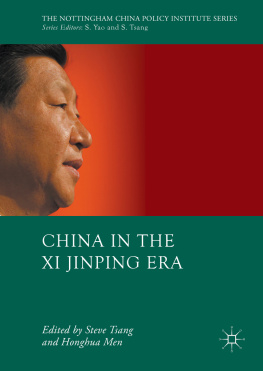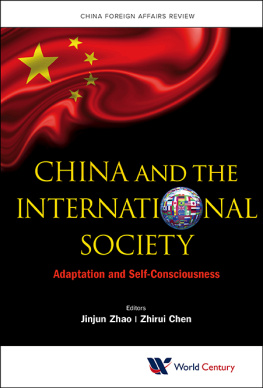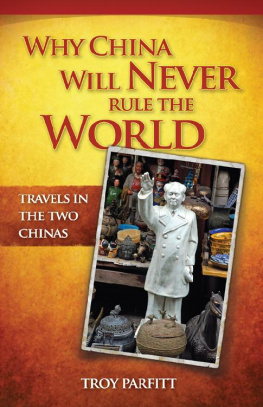Contents


Preface
O ne day, I sat sipping tea in a coffee shop while taking advantage of the opportunity to learn from the businessperson sitting across from me. She had recently moved back to Seattle after working and living in China for more than two decades. As she talked of her experiences, describing what she did in China and generally regaling me with tales of an expat in a foreign land, I asked her, So what was the number one thing you learned about China, having lived and worked there so long?
Surprisingly she didnt lean back, gaze into her coffee or up to the ceiling, or out the window into the busy Seattle street, pondering the question and how best to answer. She immediately said, What I learned about China isI will never understand China.
The long-time businesswoman did not mean that China is some strange, foreign land, an unknowable orient. No, she meant that China is too large, too complex, too fast changing to know entirely. Understanding China today, is not knowing China tomorrow. China under President Xi is a very different place than under President Hu. Understanding and spending time in Shenzhen does not mean one understands Tianchang. I know I certainly dont. China is like any large entity: there are many disparate parts adding up to an ultimately unknowable whole.
The United States is like that too. The Chinese tourists who travel to New York and Las Vegas have not seen America. Yazoo City, Mississippi, with its extreme poverty, is America, but so too is Medina, Washington, where Bill Gates and Jeff Bezos live (I imagine their butlers walking next door to borrow really expensive, fancy sugar from each other). India is similarly unknowable and complicated. In fact, any large country, any large entity, is ultimately beyond complete understanding.
So people, including China experts, maybe especially China experts, who tell you they know China are not telling the whole truth. I wont claim to tell you the whole truth either in this book, but I will tell you what I do know and have learned. Just not necessarily as a China expert.
I dont speak Mandarin and cannot write simplified Chinese characters (or traditional, for that matter). But I have worked in international trade and international policy in one way or another for my whole career. I have been fortunate enough to have worked with China and on China issues over the last thirty years and have done so in policy positions, international trade and business forums, and education.
And what I have seen, learned, and experienced through the years, especially over the last seven, has compelled me to write this book. I watched China become an economic success story, achieving successes at a scale and rate not seen in history. But as China has grown economically, it has regressed politically. That would be worrisome but perhaps not a reason for this non-China expert to write this book. The challenge is that as it grew economically and regressed politically, China became expansionistic for the first time not necessarily geographically, although occasionally in that way too, but certainly in working to export its system abroad and help tear down what until recently was a flawed and evolving liberalized world order. Worse yet, China has been aided and abetted by other countries in tearing down this order, countries including liberalized democracies, most especially the one of which I am a citizen.
Perhaps even that would not have spurred me to write this book, but even as all this happened, I read about, listened to, and watched the implementation of policies that I worry will either be ineffective, counterproductive or both in dealing with the new challenging China. So I decided to explain why a new strategy is needed for China, explain its economy in that regard, and tackle what the United States should do, in concert with other countries, to deal with this new, challenging China.
When I write China in regard to its troubling actions and efforts, I am not referring to the 1.3 billion Chinese living there. I am referring to the party/state that runs modern-day China. This book and author are not against China, an amazing place, full of people who are good, bad, and indifferent just like any other country. They have achieved many great things and are as susceptible to the bad and corrupt as much as the rest of us. I may not be a China expert, but I have learned that much, at least.
And I have learned from and continue to read numerous Chinese experts whom I encourage you to read too (see the selected bibliography at the end of this book). These are some very smart people with vast experience in China who have keen insights. A few I have had the privilege of knowing personally, and who have been generous with their wisdom and ideas.
The best of them understand that China is not entirely understandable. They are not afraid to speak or write the three most underused words in the English language: I dont know. I will use those three words more than once in this book.
So while I, too, will never understand China, I will never give up trying. And I hope this book will help all of us start the conversation of how best we engage with and confront China to create a more prosperous, peaceful world.
CHAPTER 1
Regression and Expansion: Why a New Strategy for China
China under Xi has Changed
I n September, 2015, I was in the Westin Hotel in downtown Seattle helping to manage the Gala Dinner for the visit of President Xi Jinping of China. On my way to the hotels grand ballroom where the dinner would take place, I walked by the escalators, which were supposed to be operational. They were not. President Xis security team had shut them down even though they knew this broke the fire code. They had been told not to do this. More than ample security measures were in place to protect President Xi and all the other dignitaries in the hotel that day (There were lots of corporate executives from all over the country gathering around the President of China like teenage girls at the Beatles Ed Sullivan Show in the early 1960s or, perhaps more relevant today, at a BTS K-pop concert.).
But none of this mattered to President Xis security personnel, who did what they wanted when they wanted, even though they were not in their own country. U.S. laws were of no matter to them. This, of course, is a good metaphor for Chinas new assertiveness in the world in the Xi era.
The visit of President Xi to Seattle was far different from when President Hu Jintao came to Seattle nine years earlier, a visit I also worked on. During President Hus visit, we worked with his advance team many months ahead of the visit. President Hus team asked for suggestions on both the content and the logistics of the visit and in many cases accepted our suggestions. For example, our local host committee suggested they should not drive to a certain location during rush hour since it would disrupt traffic so badly that the story would end up being about angry motorists rather than the messages President Hu hoped to convey during his visit. Never, ever anger a commuter is always good PR advice in our experience. President Hus team accepted this advice and adjusted the schedule accordingly.
In addition, we suggested that when President Hu visited Microsoft, he meet with kids using Microsoft software to learn Mandarin. The Chinese advance team loved the idea, and Bill Gates and President Hu together watched the young children speak Mandarin and write simplified Chinese characters using Microsoft software. I even got to pretend to be President Hu during a practice run-through with the children while a friend and Microsoft worker subbed as Bill Gates. This will presumably be the only time in my life I will have filled in as Chinese president, much to the relief, Im sure, of 1.3 billion Chinese. The event and the whole visit went well from a Seattle perspective and from a China point of view.

